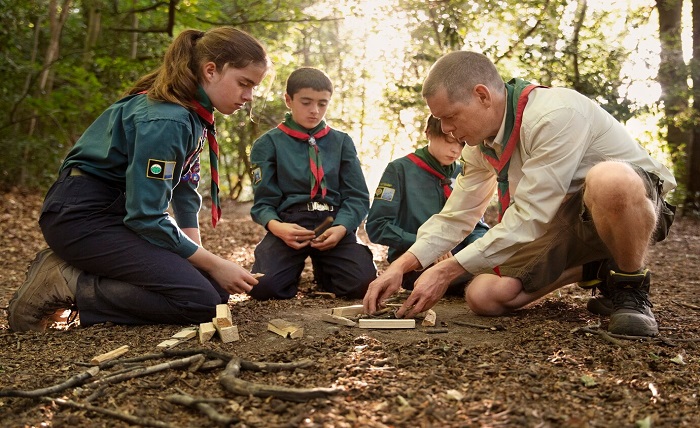In the wild, where every decision counts, scouting helps young leaders to think carefully, take risks, and make quick choices. Leadership is about helping, not just giving orders. Outdoor activities teach kids to work together, be responsible, and do things on their own.
How Scouting Builds Confidence
Confidence doesn’t appear overnight. It grows through experience. Scouting gives you chances to face challenges and beat them.
A first-time camper might feel scared sleeping outside. But after a few nights, that fear turns into excitement. Learning how to pitch a tent, cook outdoors, and navigate trails fosters independence. Each success builds confidence, like winning a game at Bizzo Casino, where a jackpot could change your life.
Failure is part of learning. A failed fire attempt teaches patience. A wrong turn on a hike encourages better navigation skills. When a kid makes a mistake, especially while scouting, they quickly learn that the best teacher is themselves as they have to learn from their own mistakes.
Developing Decision-Making Skills
Great leaders make good choices. Outdoor leadership teaches scouts to think fast and smart.
Imagine a group hike. The leader must decide the best route, pace, and breakpoints. If a storm rolls in, they must adjust plans quickly. These decisions shape their ability to lead in everyday life.
Leadership in the outdoors also means knowing when to ask for help. Scouts learn that teamwork is vital. No one succeeds alone. Problem-solving becomes second nature as they collaborate and plan.
Teamwork and Communication in the Wild
Outdoor leadership is not a solo journey. Communication is key. Scouts must relay instructions clearly, listen actively, and work together.
Picture a group setting up camp. One scout gathers firewood, another sets up tents, and another prepares food. Without clear communication, tasks overlap, or worse—get ignored. Good leaders keep everyone on the same page.
Respect and patience are also important. Not everyone moves at the same pace. Some need encouragement. Others need space to figure things out. Scouting helps young leaders understand different perspectives and how to motivate others.
Overcoming Fears and Challenges
Nature pushes limits. Climbing a big hill, crossing a river, or staying in the woods can be scary. But facing these fears helps you grow.
A scout who once hesitated to lead a group now steps forward with confidence. The challenge wasn’t just physical—it was mental. They’ve learned to trust themselves.
Each obstacle conquered becomes proof of resilience. The more they push past discomfort, the more they realize their potential.
Learning Responsibility and Accountability
Leaders take responsibility for their actions. In the outdoors, this is crucial. Forgetting supplies, making poor decisions, or ignoring safety rules can have real consequences.
Scouts learn to be accountable. If they forget their flashlight, they deal with darkness. If they don’t secure food properly, animals might get into it. These lessons are powerful because they’re real.
Being responsible also means looking out for others. Good leaders ensure that no one is left behind. They check on team members, share supplies, and offer support when needed.
The Role of Mentorship in Scouting
Every great leader has a mentor or someone they look up to. In scouting, experienced leaders guide younger members. They teach skills, offer advice, and provide encouragement.
Young scouts watch and learn. They see how leaders handle pressure, make decisions, and support their teams. Eventually, they step into those roles themselves.
Mentorship creates a cycle of leadership. Older scouts inspire younger ones. The tradition continues, strengthening the entire scouting community.
Real-Life Applications of Outdoor Leadership
The skills learned in scouting don’t stay in the woods. They apply to everyday life.
- Problem-solving: Scouts know how to tackle problems and find solutions, whether at school, work, or in life.
- Resilience: Scouts build resilience and never give up. They see challenges as something to get through.
- Communication: Clear speech and active listening help in relationships, education, and careers.
- Confidence: The ability to lead, make decisions, and take initiative sets scouts apart in any environment.

